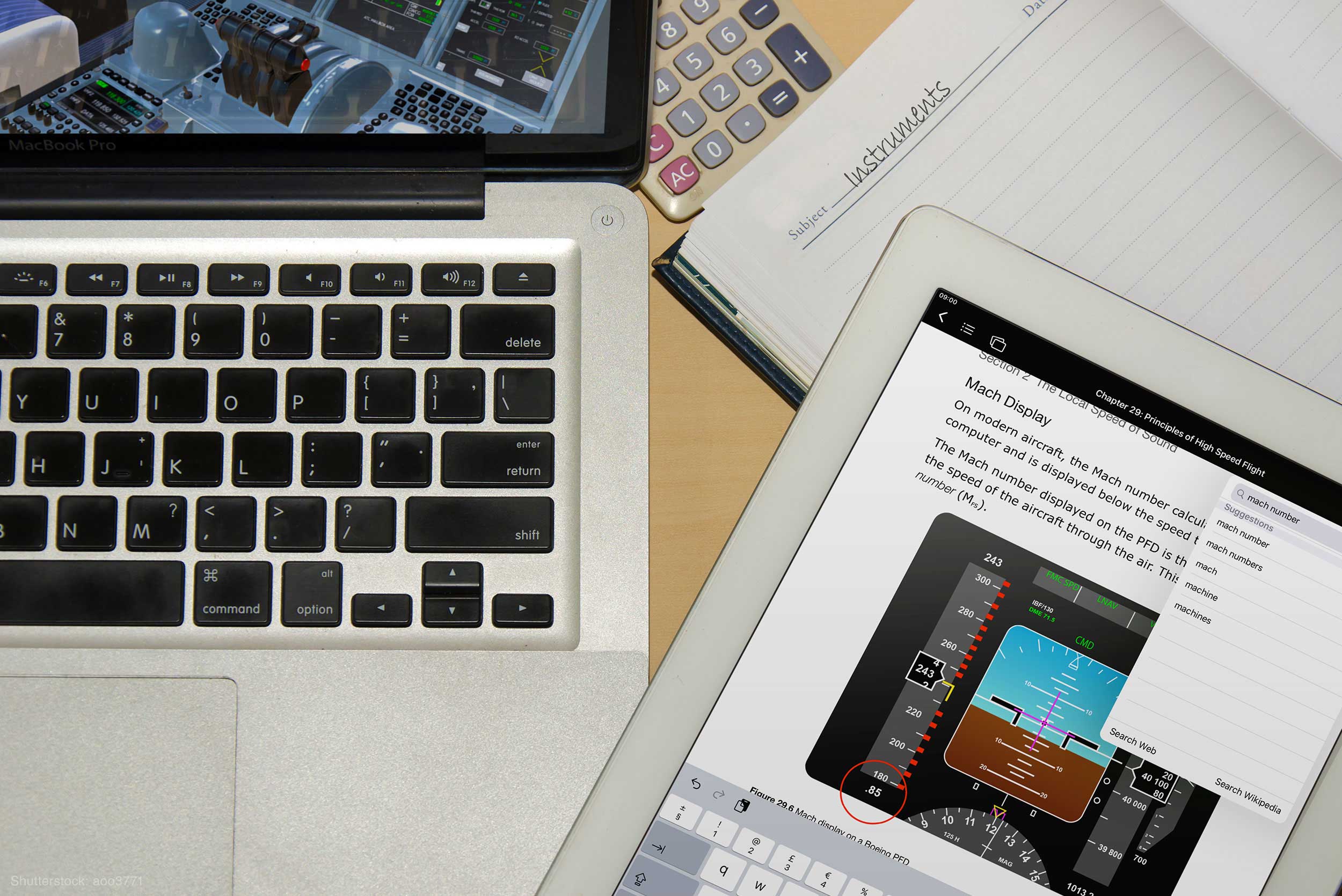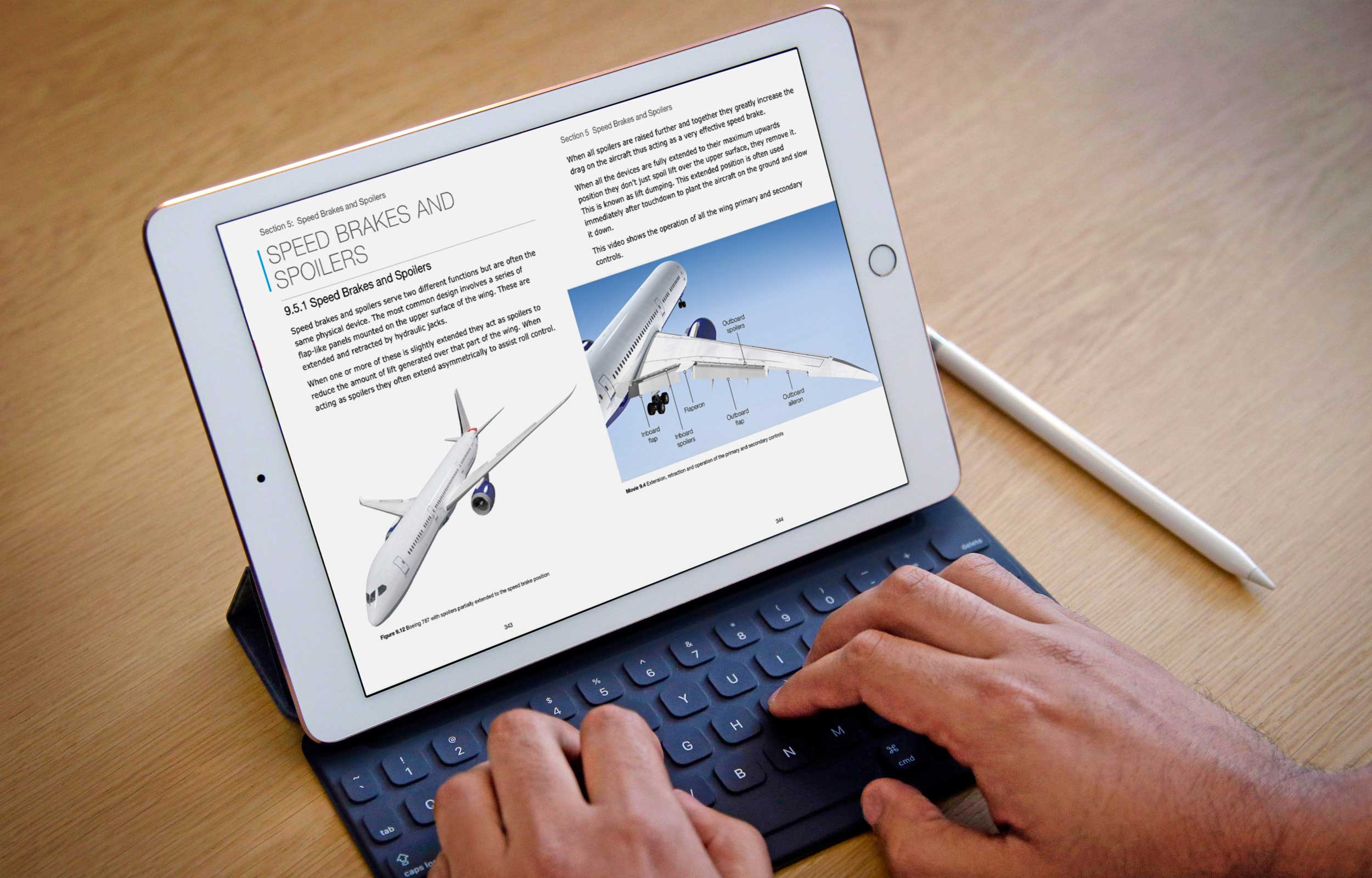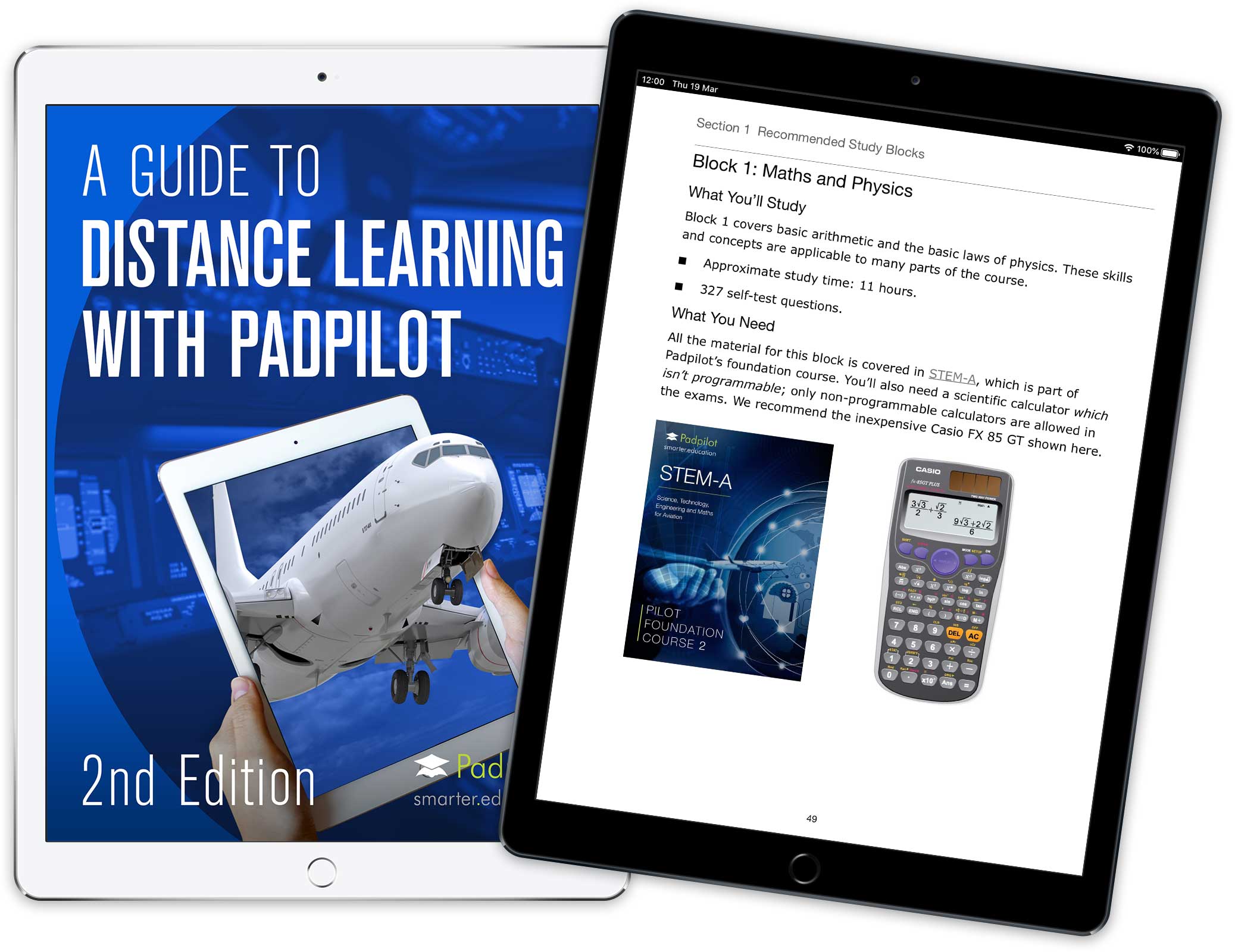
If you’ve been forced into distance learning because of COVID-19, or have decided to use your time at home to start preparing for a career as a pilot, ATPL publisher, Padpilot, has some tips for successful home study.
Where to start
Looking at the ATPL syllabus is daunting at first, so if you haven’t got a programme of study from an ATO, just think about the first couple of weeks. We recommend revising your basic maths and physics knowledge to start with, before moving on to ATPL Human Performance, followed by ATPL Aircraft General Knowledge.
Get the most from your studies
1 Vary your location. Research has shown that changing where you study helps you remember what you’re learning. You probably can’t leave your house at the moment, but at least change rooms during the day so the view is different.
The brain makes subtle associations between what it’s learning and where it’s learning it and changing the links between the two improves retention.
2 Vary your subjects within a study session. Don’t just study one book at a time. It’s tempting to just plough through one, but mix it up. Study a unit from one subject, and then a unit from another.
Alternating between reading and practising a skill, and from one ATPL subject to another, helps the brain develop patterns of associations between knowledge, and creates more in-depth understanding.
3 Use the study spacing technique. Study for an hour or so, then take a good break. Then maybe study for another hour, in a different location, later in the day. Spacing like this improves recall without you having to increase the overall time spent studying.

4 Don’t cram. You probably already know that cramming is only useful in the very short term. Educational psychologist, L. Roediger, says that cramming is like packing a suitcase in a rush. It holds your stuff for a while, but then most of it falls out.
“When the neural suitcase is packed carefully and gradually, it holds its contents far, far longer.” Time is one thing many of us have at the moment, so don’t rush what you’re learning.
5 Embrace testing. Progress tests during ATPL ground school don’t just test your knowledge, they also reinforce it. Having to retrieve and then use information changes your knowledge for the better. Educational psychologists now believe that testing is one of the most powerful learning tools.
6 Make notes. Don’t just read -your brain sending writing signals to your hand is a form of active learning. This process also improves retention.
7 Embrace difficulty. The harder it is to remember something, the harder it is to forget it. So don’t be put off by the more challenging parts of the course.
8 Practice, practice, practice. The course contains many skills you must master, like using formulae, navigation computers, and plotting techniques. The more you practice these skills, the better you’ll become. The exams don’t allow much margin for trial and error, so if you have mastered these skills your only task in the exam will be to answer the question – rather than trying to remember how to solve it!
9 Don’t get stuck. Sometimes you’ll come across a topic or skill that you don’t understand. Don’t get bogged down by repeatedly trying to complete it. Skip it and come back to it later – after you have been studying other topics, or when you can speak to an instructor.
These tips are taken from Padpilot’s free Guide to Distance Learning. Download your copy here.

